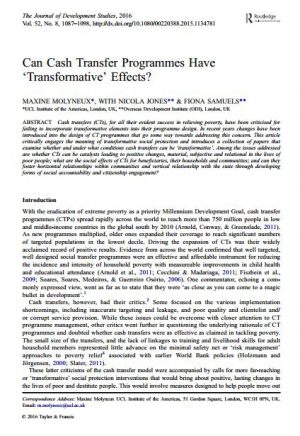
Policy highlights:
- In response to criticism of the non-transformative character of cash transfers, transformative elements have been integrated into the design of cash transfer programmes. However, the meaning of ‘transformative social protection’ and the conditions under which cash transfers are transformative require further exploration.
- At the micro level, the psychosocial effects of cash transfers, such as gain in self-confidence and self-worth, have been emphasized as a transformative factor affecting the participation of beneficiaries in society. Additional support, for instance through mentoring, can increase the psychosocial effects of cash transfers.
- The micro-level benefits have not let to greater political engagement of beneficiaries and the embeddedness of cash transfers in the overall institutional environment has been weak. Moreover, the power position of beneficiaries within society has not improved as a result of cash transfers.
- Ensuring transformative social protection will require greater accountability mechanisms from the programme to the beneficiary, as well as better adjustment to local contexts and politics.






